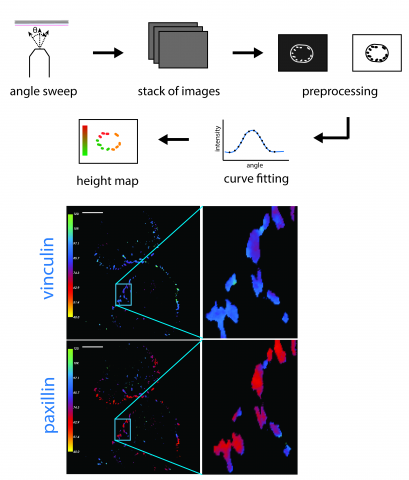
Congratulations to Guanqing Ou and coauthors on their publication in Integrative Biology!
Abstract: The mechanical properties of the extracellular matrix influence cell signaling to regulate key cellular processes, including differentiation, apoptosis, and transformation. Understanding the molecular mechanisms underlying mechanotransduction is contingent upon our ability to visualize the effect of altered matrix properties on the nanoscale organization of proteins involved in this signalling. The development of super-resolution imaging techniques has afforded researchers unprecedented ability to probe the organization and localization of proteins within the cell. However, most of these methods require use of substrates like glass or silicon wafers, which are artificially rigid. In light of a growing body of literature demonstrating the importance of mechanical properties of the extracellular matrix in regulating many aspects of cellular behavior and signaling, we have developed a system that allows scanning angle interference microscopy on a mechanically tunable substrate. We describe its implementation in detail and provide examples of how it may be used to aide investigations into the effect of substrate rigidity on intracellular signaling.

